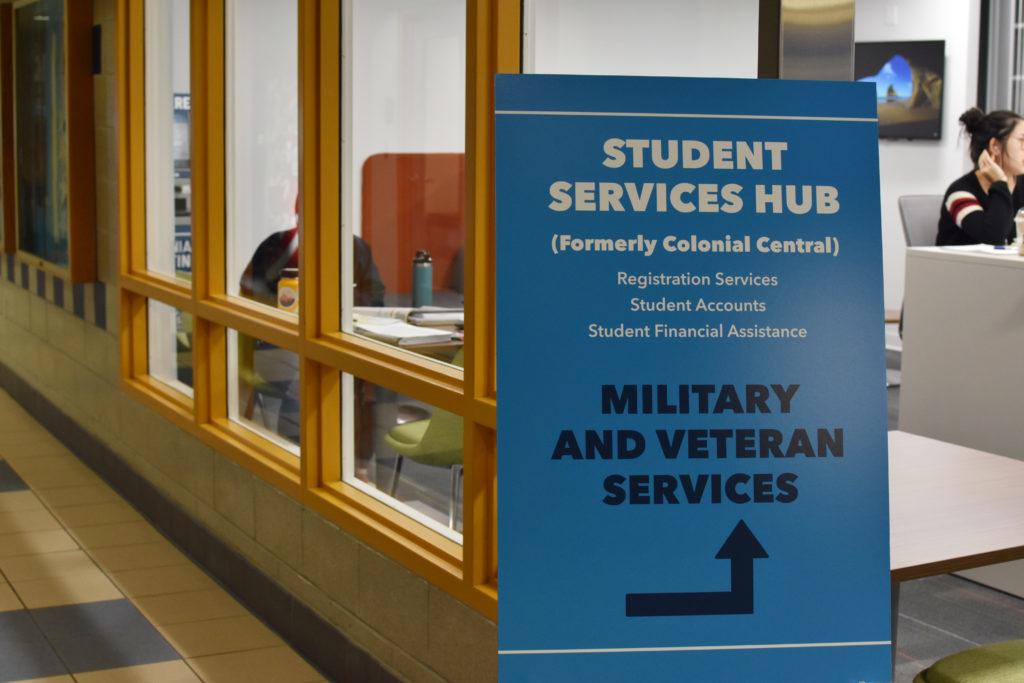After two years of planning, officials will begin accepting applications this month for a council for students to relay concerns about the financial aid office.
The Financial Aid Advisory Council will begin meeting this September with at least 10 students and officials to provide a student perspective on GW’s aid policies and services. Officials said the council will meet six times over the next academic year to review policies in the financial aid office and relay student feedback, improving previously strained communication between students and the office.
Jay Goff, the vice provost for enrollment and student success, said officials have been informally working with Student Association leaders to identify four areas in the office for “immediate focus,” like providing faster award packaging and improving overall communication with students. He said their conversations also helped the office with introducing an online counseling appointment system and expanding the course enrollment refund policy to 100 percent for the first two weeks of the semester.
“From my perspective, what I’m trying to do is make sure that we have active student feedback in all of our services,” Goff said. “I believe that’s the best way to have accurate and reliable, continuous improvement efforts. And so the idea of having an active and regular advisory council, that is perfect with my concept for the new strategic enrollment management plan at GW.”
Goff stepped into his position last August while the University was adjusting some students’ financial aid packages during the pandemic. At the time, students had raised concerns about the amount of their awards, prompting officials to hold two town halls on WebEx to answer student concerns and address the issue.
He said the office collaborated with the SA on the town halls, before beginning to regularly communicate with then-Executive Vice President Brandon Hill for an additional perspective. He said their conversations focused on how to improve communication with students and introduce new policies the office was considering.
He added that students on the council will learn more about office processes like repackaging awards, which they can share with their peers to prevent the same type of miscommunication that occurred last August.
“As we went through the repackaging process, we talked about what are some long-term activities we could do to make sure that we have regulatory and consistent student input on the financial aid processes and programs,” Goff said.
Michelle Arcieri, the executive director for student financial assistance, said the office launched a scheduled counseling system last fall they had piloted in the spring to address students’ concerns with their repackaged financial aid awards. She said the new system allows students to submit questions before their meeting and get help promptly instead of having to wait via the office hotline.
She added that the office has been collecting students’ feedback via a customer service assessment, which will be shared with the advisory council once they meet.
“We launched a scheduling concept that allowed families to schedule time in advance, have their questions submitted to us and all of that,” Arcieri said.
She said selected students will serve one-year terms on the council, meeting a total of six times next year, three times per semester, with additional meetings called if necessary. She said each meeting will focus on different topics throughout the year, like reviewing student service platforms in October and student feedback in November.
The council’s first meeting in September will focus on reviewing students’ accessibility applying for the Free Application for Federal Student Aid. The last meeting in April will include the development of the group’s annual report and recommendations for next academic year.
Arcieri said the financial aid office will work with 10 to 20 students and two appointed members of the SA to provide the office with advice regarding communications, technology and student services. She said the council will select students from all residential and non-residential schools – except GW Law and the School of Medicine and Health Sciences, which have separate financial aid offices – to represent students’ concerns broadly.
“We had some delays and COVID then struck and so we just sort of had a number of delays with the startup,” Arcieri said. “But the goal was always to have the advisory council start. It is something that again, student feedback is essential and we know that, and we know that this is not to get the council up and running and let it fizzle out.”
Hill, now the SA president, said the SA will encourage students to apply for the council through the group’s newsletter and social media platforms, like Instagram. He said the need for the council was “pertinent” before but has been “exacerbated” as a result of the COVID-19 pandemic’s effects on students’ financial situations.
He said the council will help students understand the office’s processes rewarding aid and streamline communication between both their peers and officials.
“This advisory council is really just a way for students to stay in that process and spread the knowledge that they learn with the rest of the student body when it comes to fast deadlines, when it comes to interactions with this group and other members of the Office of Student Success,” Hill said. “So, it’s really just an amazing step toward greater communication. And the SA is thankful to be a part of that collaboration with the Office of Enrollment and Student Success.”








